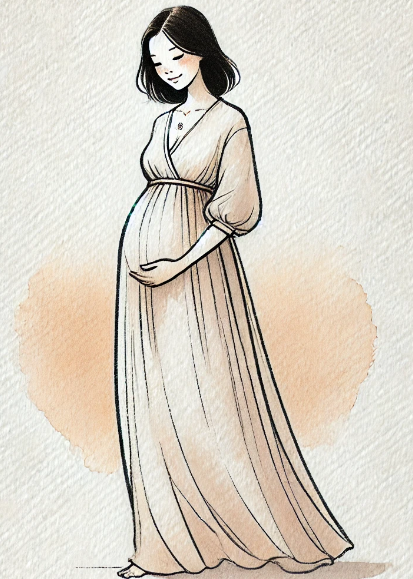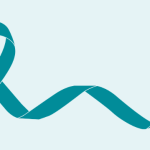
Understanding Postpartum Depression
Imagine bringing new life into the world—a time painted as joyous and fulfilling. But for millions of women, this chapter is clouded by feelings of sadness, isolation, and overwhelming anxiety. Postpartum depression (PPD) doesn’t just affect new mothers—it ripples through families, reshaping relationships and sometimes leaving scars that last a lifetime. A recent qualitative meta-synthesis provides insight into the hidden battles of women with PPD and calls for systemic change in how we approach maternal mental health.
The Unseen Weight: Key Findings on Postpartum Depression
A review of 28 studies involving over 400 women revealed profound insights into the emotional, physical, and social challenges faced by new mothers experiencing PPD. The findings coalesce into three themes:
- Negative Psychological and Physical Experiences
- Role Transition Discomfort and Its Ripple Effects
- A Stark Lack of Support Systems
These interconnected struggles form a complex web that makes recovery feel out of reach for many. Let’s explore each area in depth.
Negative Psychological and Physical Experiences: More Than “Baby Blues”
New mothers often report feelings of sadness, guilt, or even shame for struggling emotionally during what is culturally considered a joyous time. For many, the physical toll of childbirth compounds the emotional weight.
- Emotional Struggles: One mother shared, “I feel trapped. No matter how hard I try, these terrible feelings won’t disappear.”
- Physical Burdens: From painful breastfeeding experiences to lingering incision pain from C-sections, the physical recovery process exacerbates emotional distress.
Mothers described a relentless cycle of exhaustion and despair, often feeling isolated because they couldn’t articulate their struggles to friends or family. Without intervention, this emotional spiral may deepen, threatening both mother and child.
Transitioning to Motherhood: A Role That Feels Too Heavy
Motherhood is a seismic shift, and many women feel unprepared for the psychological transition. One participant admitted, “I feel like I’m still a kid myself and can’t take care of my baby.”
Lifestyle changes that leave little room for individuality or joy compound the pressure to be a perfect parent. Mothers often sacrifice hobbies, social connections, and even financial independence. These changes, combined with cultural expectations like the traditional Chinese practice of “doing the month,” often heighten feelings of confinement and stress.
This discomfort isn’t just a personal issue; it ripples through families. Tensions arise between partners, in-laws, and other family members, often leaving mothers feeling unsupported and misunderstood.
Support Systems: The Missing Lifeline
Perhaps the most concerning theme is the lack of support—emotional, practical, and informational—that these women receive. Many mothers reported being dismissed by healthcare professionals, misunderstood by partners, and burdened with overwhelming household responsibilities.
One poignant story illustrates the gap: “I asked for help from a doctor, but they told me to stop disturbing them. My husband was with me, and I’ve never felt so invisible.”
Even small gestures of support, such as helping with chores or simply listening without judgment, could make a meaningful difference. Yet, these are too often absent, leaving women to navigate PPD alone.
Real-World Implications: Why This Matters
Postpartum depression isn’t just a personal struggle; it’s a public health issue. Untreated PPD can lead to long-term consequences for mothers, their children, and society at large:
- For Mothers: Chronic mental health issues and strained relationships.
- For Children: Developmental delays and emotional challenges.
- For Families: Increased marital stress and financial strain.
Recognizing the warning signs and providing accessible, culturally sensitive support can drastically improve outcomes. Hospitals, community organizations, and even workplaces can play a role in creating a safety net for new mothers.
A Path Forward: Building Better Support Systems
This meta-synthesis highlights urgent needs for systemic change. Here’s how we can better support mothers experiencing postpartum depression:
- Routine Mental Health Screenings: Make mental health evaluations a standard part of prenatal and postpartum care.
- Culturally Sensitive Interventions: Tailor support programs to consider cultural practices and beliefs, ensuring inclusivity.
- Practical Support Initiatives: Establish programs that provide tangible help—like meal services or childcare—to alleviate daily stressors.
- Community Networks: Create safe spaces for mothers to connect and share experiences, whether online or in-person.
Implementing these measures doesn’t just improve maternal health—it strengthens families and communities, ensuring that the next generation can thrive.
The Takeaway
Postpartum depression is more than a fleeting sadness—it’s a deeply isolating and often debilitating condition. This research underscores the critical need for empathetic care and robust support systems. By addressing the emotional, physical, and social needs of new mothers, we can turn a silent struggle into a shared journey of healing.
What Do You Think?
- How can communities better support new mothers experiencing postpartum depression?
- What role should partners play in addressing maternal mental health challenges?
Share your thoughts in the comments and join the conversation. Let’s break the silence around postpartum depression—one story at a time.




